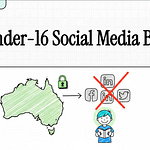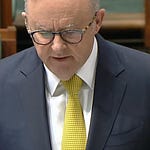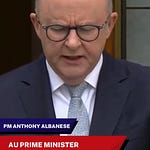NATO allies agreed Wednesday to dramatically increase defense spending to 5% of gross domestic product, marking the most significant expansion of the alliance's military investment commitment since its founding 75 years ago.
NATO Secretary General Mark Rutte announced the landmark decision during a closing press conference at the 2025 NATO Summit, saying allies had "laid the foundations for a stronger, fairer and more lethal NATO" through adoption of The Hague Defence Investment Plan.
"Allies have agreed to invest 5% of GDP in defence," Rutte said. "This is a significant commitment in response to significant threats to our security."
The new spending framework represents a substantial increase from NATO's previous benchmark of 2% of GDP for defense expenditures. Under the new plan, member nations will allocate 3.5% of GDP to "core defence requirements" and an additional 1.5% toward "investments that support our defence and security."
Rutte said the 3.5% portion "is to fund our militaries and the equipment they need – from our air defences to ammunition, drones, tanks, troops, and more." The additional 1.5% will support broader defense and security investments aimed at deterring aggression.
The secretary general noted that all NATO allies "will now meet this year or have already met" the previous 2% target, which had been a longstanding benchmark that some members struggled to achieve.
"It includes at least 3.5% of GDP invested in core defence requirements – a benchmark that until today was set at 2%," Rutte explained during the press conference.
President Donald Trump, attending his second NATO summit, reaffirmed U.S. commitment to the alliance while emphasizing expectations for increased European and Canadian contributions.
"President Trump has been clear, America is committed to NATO. He affirmed that again today in no uncertain terms," Rutte said. "At the same time, he made clear that America expects European Allies and Canada to contribute more. And that is exactly what we see them doing."
The secretary general described the new arrangement as creating a "fairer Alliance with Europe and Canada stepping up and carrying their fair share of the responsibility for our shared security."
NATO leaders also pledged continued support for Ukraine, with Rutte announcing that allies have committed "over 35 billion euro pledged so far this year, with more to follow." Ukrainian President Volodymyr Zelenskyy attended the summit alongside his delegation.
"My dear friend, Volodymyr Zelensky, is here in The Hague with us at the NATO Summit, along with his team," Rutte said. "Our resounding message to him and the Ukrainian people is that Ukraine has our continued support."
The alliance reaffirmed its position supporting "Ukraine on its irreversible path to NATO membership" while maintaining that the goal is to "keep Ukraine in the fight today, so that it can enjoy a lasting peace in the future."
Rutte emphasized that the spending increases will drive expansion of defense industrial capacity across member nations. The plan calls for rapidly boosting production capabilities "on both sides of the Atlantic" to meet new requirements.
"We need quality and quantity. We need to innovate and we need to act fast," Rutte said, noting that implementation would require continued efforts to "bring down barriers" and leverage partnerships with the European Union, Ukraine, and Indo-Pacific partners.
The secretary general highlighted significant economic benefits from the defense investment plan, citing "the potential for literally millions of extra jobs across the Alliance" as defense industries expand to meet new production demands.
NATO's Updated Defence Production Action Plan, released publicly during the summit, outlines the alliance's strategy for coordinating increased manufacturing capacity. The plan focuses on aggregating demand across member nations, boosting production capacity, and strengthening engagement between military planners and industry partners.
"Together, Allies have laid the foundations for a stronger, fairer and more lethal NATO," Rutte said, describing the decisions as having "a profound impact on our ability to do what NATO was founded to do – deter and defend."
The secretary general framed the spending commitment as a response to diverse security challenges facing the alliance.
"It means that no matter the challenges we face – whether from Russia or terrorism, cyberattacks, sabotage or strategic competition – this Alliance is and will remain ready, willing and able to defend every inch of Allied territory," Rutte said.
He added that the goal is ensuring "our one billion people can continue to live in freedom and security."
The summit's focus on industrial capacity reflects NATO's assessment that modern defense requires unprecedented coordination between government and private sector partners. Defense ministers, industry leaders and experts participated in discussions aimed at identifying practical solutions for enhanced production and innovation.
Rutte characterized current global tensions as requiring NATO to balance multiple priorities simultaneously. The alliance must "ensure we can effectively deter aggression and defend ourselves, and each other, should anyone make the mistake of attacking," he said.
The secretary general emphasized that implementation of the new spending targets represents just the beginning of a broader transformation.
"Of course, work does not stop here. This is day one," Rutte said. "We now shift from agreeing on what we need – to rolling up our sleeves and making this new plan our reality."
The commitment extends beyond traditional military spending to encompass what NATO describes as comprehensive security investments. The 1.5% portion of GDP designated for supporting investments acknowledges that modern defense requires capabilities spanning cybersecurity, space assets, and dual-use technologies.
NATO officials indicated the alliance will continue leveraging partnerships with various international organizations and regional partners to maximize the effectiveness of increased defense investments.
"We will leverage our partnerships with the European Union, with Ukraine, and in the Indo-Pacific to foster defence industrial cooperation," Rutte said.
The secretary general concluded by emphasizing alliance unity and determination in the face of evolving security challenges.
"The resolve of Allies is clear. We are in this together. Committed to Article 5. And we are determined to stand firm," Rutte said. "No one should doubt our capacity or determination should our security be challenged."
The Hague Defence Investment Plan will require ratification and implementation by individual member nation parliaments and governments, though specific timelines for achieving the new spending targets were not immediately announced.
The 2025 NATO Summit in The Hague marked the alliance's 75th anniversary year and represents what officials described as a defining moment for transatlantic security cooperation in the 21st century.
Got a News Tip?
Contact our editor via Proton Mail encrypted, X Direct Message, LinkedIn, or email. You can securely message him on Signal by using his username, Miko Santos.
As well as knowing you’re keeping MENCARI alive, you’ll also get:
Get breaking news AS IT HAPPENS - Gain instant access to our real-time coverage and analysis when major stories break, keeping you ahead of the curve
Unlock our COMPLETE content library - Enjoy unlimited access to every newsletter, podcast episode, and exclusive archive—all seamlessly available in your favorite podcast apps.
Join the conversation that matters - Be part of our vibrant community with full commenting privileges on all content, directly supporting Mencari's
Not ready to be paid subscribe, but appreciate the newsletter ? Grab us a beer or snag the exclusive ad spot at the top of next week's newsletter.
It only takes a minute to help us investigate fearlessly and expose lies and wrongdoing to hold power accountable. Thanks!













